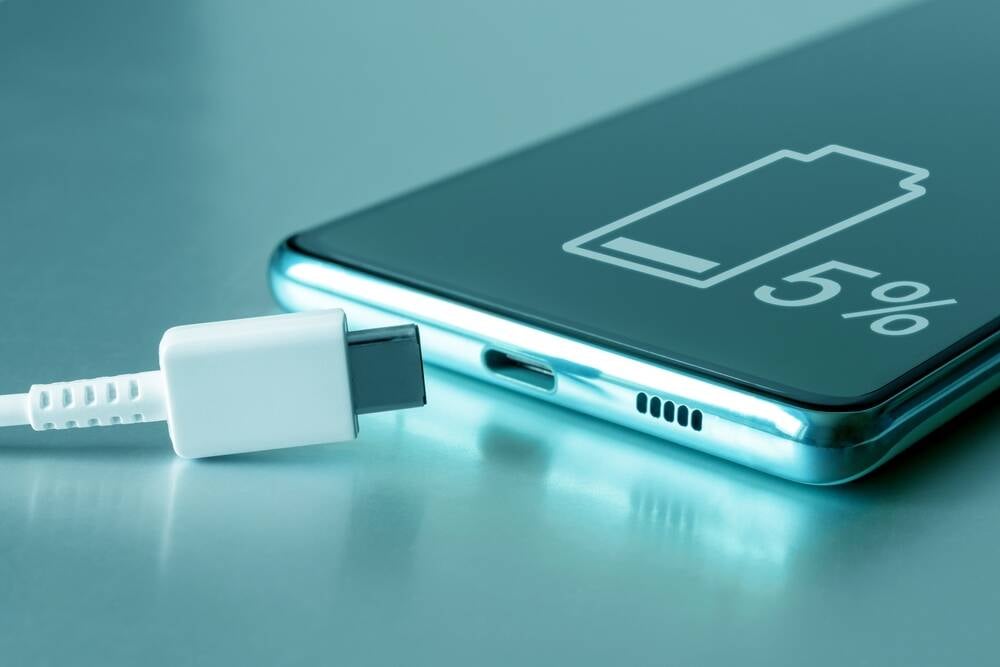UK Ponders USB-C As Common Charging Standard

UK government has kicked off a consultation on whether the country should have a common standard for charging electrical devices, and if this needs to be the same as the USB-C connector the EU adopted.
In a call for evidence this month, the Office for Product Safety and Standards within the Department for Business and Trade said it wants to hear from manufacturers, importers, distributors, and trade associations.
The EU has already outlined USB-C as its standard for charging personal devices across all of its 27 member states, as has India – the world's second-largest smartphone market. The standard is also being mooted for possible adoption by the US as well. Even Apple has reluctantly accepted USB-C.
In The Register's estimation, the chances are pretty small that device makers will be prepared to build special versions of their products to cater specifically to the UK consumer, should the government elect to go its own way.
The call for evidence points out that recent developments in wired charging technologies and evolving international standards provide an opportunity to reduce electronic waste and benefit consumers by specifying a standardized charger for smartphones and similar gadgets.
"We consider that it would potentially help businesses and deliver consumer and environmental benefits if we were to introduce standardized requirements for chargers for certain portable electrical/electronic devices across the whole UK," the Office for Product Safety and Standards stated. "We are seeking views from manufacturers, importers, distributors, and trade associations as to whether it would be helpful to do so and, if so, whether this should be based on USB-C – as adopted by the EU."
The aim of the exercise is to help the office understand the potential impact of introducing the measures. It wants feedback of the potential issues and practicalities of having a common charger based on USB-C.
However, the agency notes that having USB-C as a common charging port should mean that one charger will work for multiple devices. It may also allow manufacturers to "unbundle" the sale of a charger, meaning that consumers have the option to purchase new devices without a charger.
The Office for Product Safety and Standards conceded that "manufacturers are likely to adopt a similar approach to the EU Common Charger Directive for the whole of the UK on a voluntary basis in order to avoid supply chain complexity," and concluded: "As a result, the USB-C charging port is likely to become the industry default."
However, it added: "the government considers that it would potentially help businesses deliver consumer and environmental benefits if we were to implement an equivalent charging solution across the UK. We are first seeking necessary evidence to better understand the expected implications of doing so."
It's interesting timing, two years after a UK government spokesperson said "we are not currently considering replicating" the EU charging requirement and a full year after the European Union officially mandated USB-C charging for a wide range of electronic devices.
We trust that sensible heads will prevail, and we avoid repeating the farce over replacing the EU's product conformity CE mark with Brit-specific UKCA (UK Conformity Assessed) marking – only for the government to backtrack and continue to indefinitely recognize the CE mark for many products.
- Green recycling goals? Pending EU directive could hammer used mobile market
- Lenovo's USB-C Power Banks pack more heat than expected
- Apple finds another use for USB-C – a cheaper Pencil
- Lightning struck: Apple switches to USB-C for iPhone 15 lineup
"The EU's common charger directive is one of several laws coming into action that are forcing manufacturers of tech devices to adjust their designs," analyst Runar Bjørhovde at Canalys told us.
"In the EU, USB-C will be a requirement from December 28 this year, which is the reason why Apple changed from its Lightning cable to USB on the iPhone 15. India has similar regulations in place for USB-Cs on smartphones and tablets.
"There are no technology products where vendors will do a separate design in the UK compared to the EU. Vendors tend to adjust to the country with the strictest legislation for these types of issues."
However, Bjørhovde also said he believes the call for evidence signals the UK is seeking to align with the EU's current legislation on this matter.
"It can also give industry players an opportunity to voice some of their concerns and opinions ahead of the directive coming into play in the EU."
The call for evidence runs for eight weeks, from October 9 to midnight on December 4. Anyone interested in responding should do so via this survey page. ®
From Chip War To Cloud War: The Next Frontier In Global Tech Competition
The global chip war, characterized by intense competition among nations and corporations for supremacy in semiconductor ... Read more
The High Stakes Of Tech Regulation: Security Risks And Market Dynamics
The influence of tech giants in the global economy continues to grow, raising crucial questions about how to balance sec... Read more
The Tyranny Of Instagram Interiors: Why It's Time To Break Free From Algorithm-Driven Aesthetics
Instagram has become a dominant force in shaping interior design trends, offering a seemingly endless stream of inspirat... Read more
The Data Crunch In AI: Strategies For Sustainability
Exploring solutions to the imminent exhaustion of internet data for AI training.As the artificial intelligence (AI) indu... Read more
Google Abandons Four-Year Effort To Remove Cookies From Chrome Browser
After four years of dedicated effort, Google has decided to abandon its plan to remove third-party cookies from its Chro... Read more
LinkedIn Embraces AI And Gamification To Drive User Engagement And Revenue
In an effort to tackle slowing revenue growth and enhance user engagement, LinkedIn is turning to artificial intelligenc... Read more

